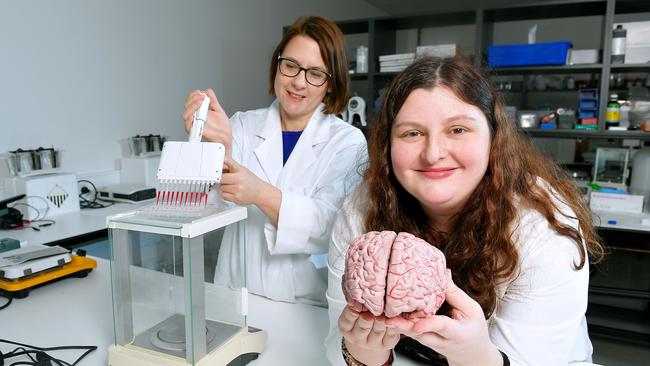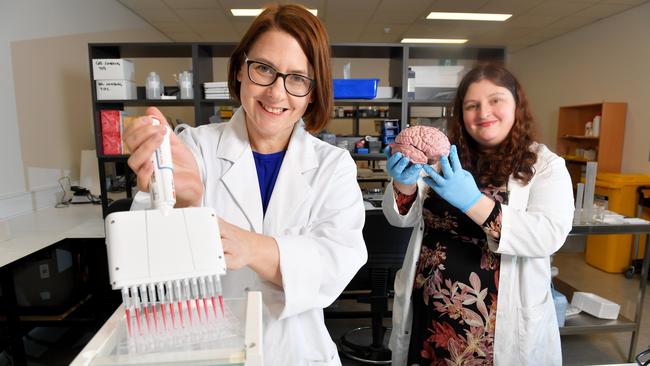Adelaide University study puts head injuries under the microscope
People who sustain a traumatic brain injury and concussion could soon have more clarity about the impacts on their long-term health, thanks to a groundbreaking Adelaide University study.
SA News
Don't miss out on the headlines from SA News. Followed categories will be added to My News.
People who sustain a traumatic brain injury (TBI) and concussion could soon have more clarity about its effect on their long-term health, thanks to a groundbreaking Adelaide University study.
The FIND-TBI study will use state-of-the-art technology to examine the brain and explore the likelihood of a TBI or concussion causing people to develop Parkinson’s disease or memory impairment.
It will include 600 people from South Australia who have had a TBI at some time during their life.
The subjects of the study will include 300 people who have had concussion and 300 with a more severe head injury.
University of Adelaide Associate Professor Lyndsey Collins-Praino will lead the research.
She said she hoped to give people a better picture of what their future might look like.

“We are doing his study to understand who may be at risk longer term, so we can get them treatment and break that link,” she said.
“We know that people who suffer concussion have an increased risk of developing those long-term health problems, but through this study we hope to learn more so we can improve the prognosis for people.”
A concussion – which is a minor brain injury caused by a bump, blow or jolt to the head – increases the risk of Parkinson’s disease by about 56 per cent. A more severe injury increases that risk by over 80 per cent.
She said the best neurologists can do at the moment is provide those percentage figures when it comes to increased risk.
“By having these multifaceted variables, looking at different severities and time-points after a TBI, and comparing with healthy people and those with established diagnoses of Parkinson’s disease, we hope to be able to uncover the factors in the brain that predict the risk of long-term illnesses,” she said,
“We’re ultimately hoping to alter the way that clinical diagnosis and prognosis for survivors of traumatic brain injury is done.”

Researchers will use state-of-the-art brain scans, along with biomarker analysis and machine learning, to compare the brains of TBI sufferers with those of healthy individuals and people with established Parkinson’s disease to provide a more accurate diagnosis.
“We are really harnessing some of the most powerful technology to conduct this research,” Prof Collins-Praino said.
She said participants for the study were starting to trickle in.
“We are really keen to attract more people,” she said.
“Most people who are involved already are really excited because they really want to know what the future might look like for them.”





